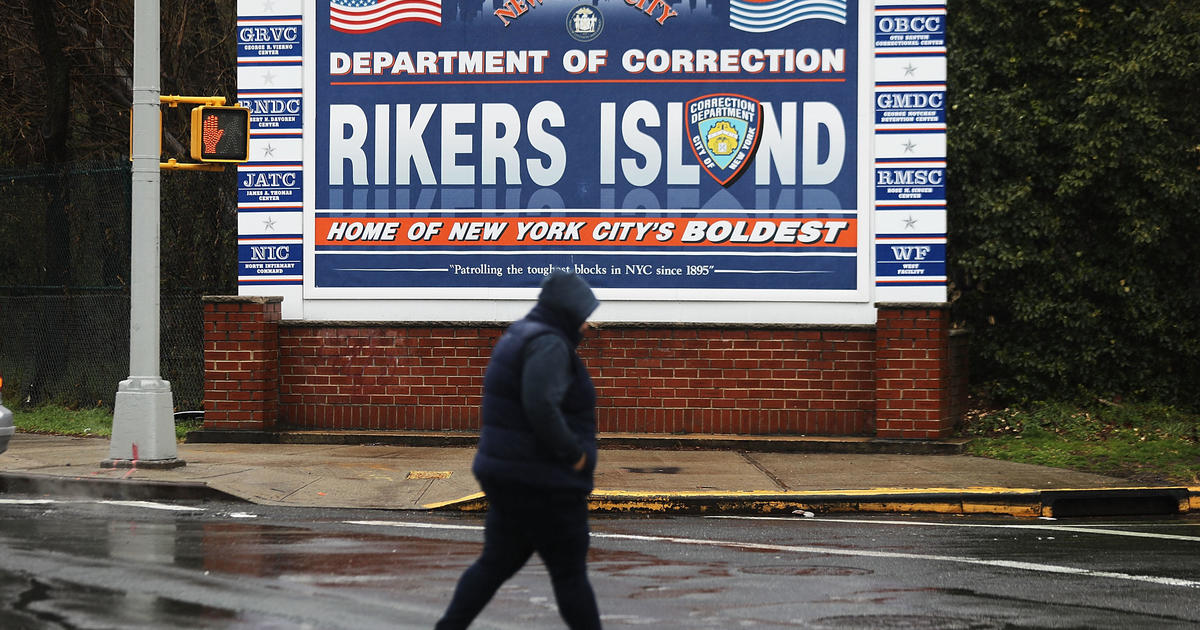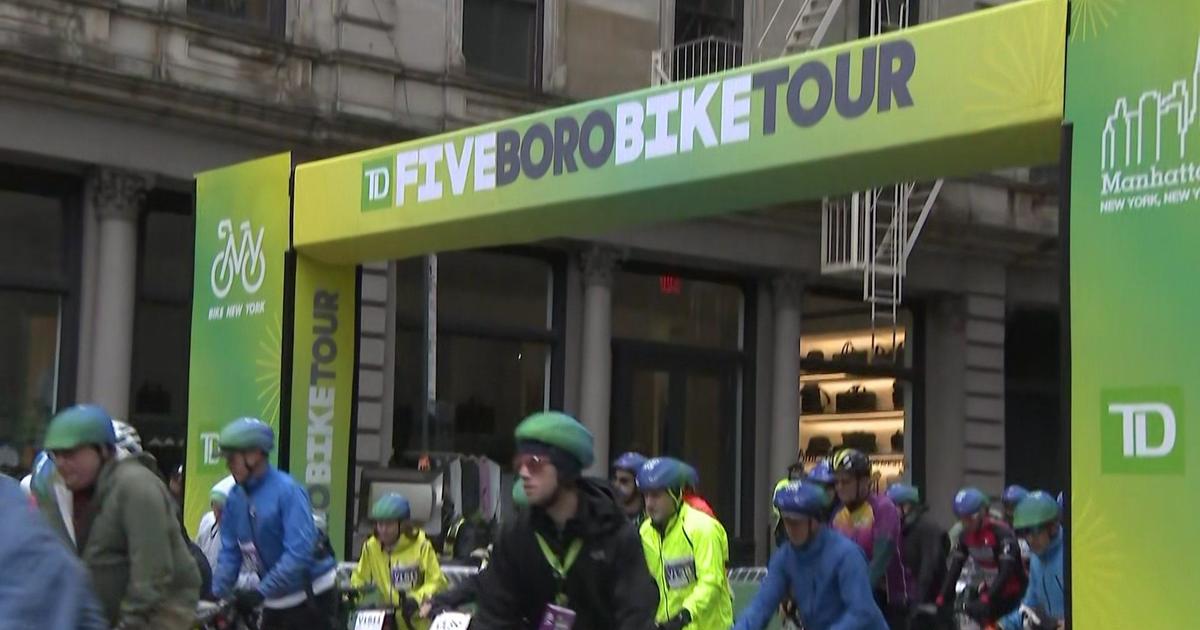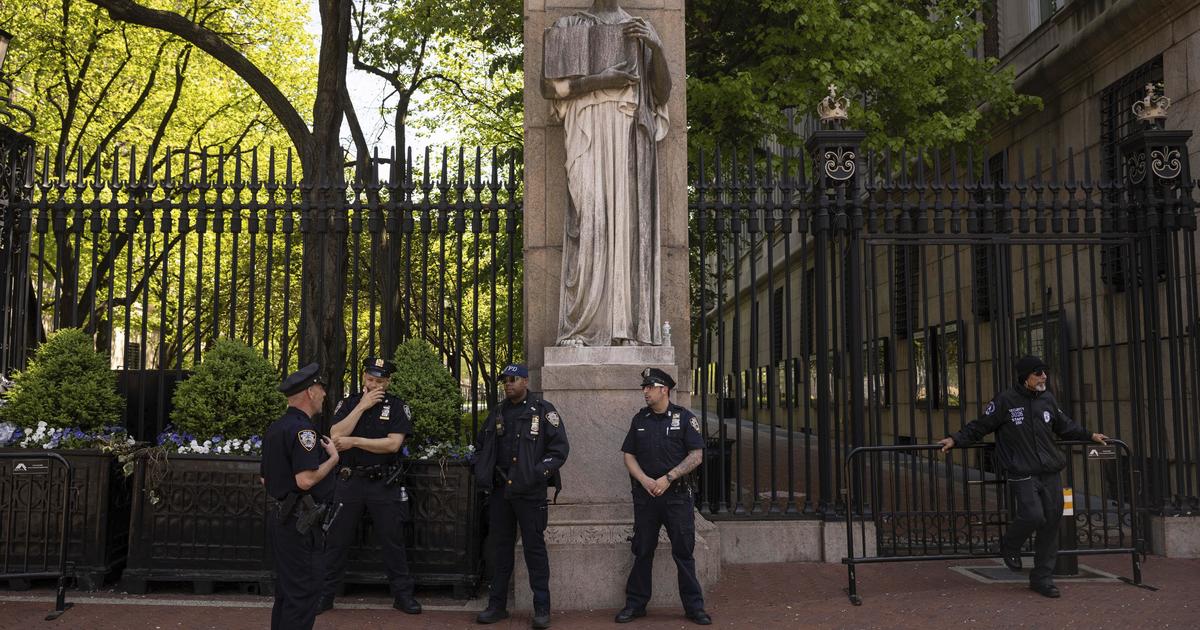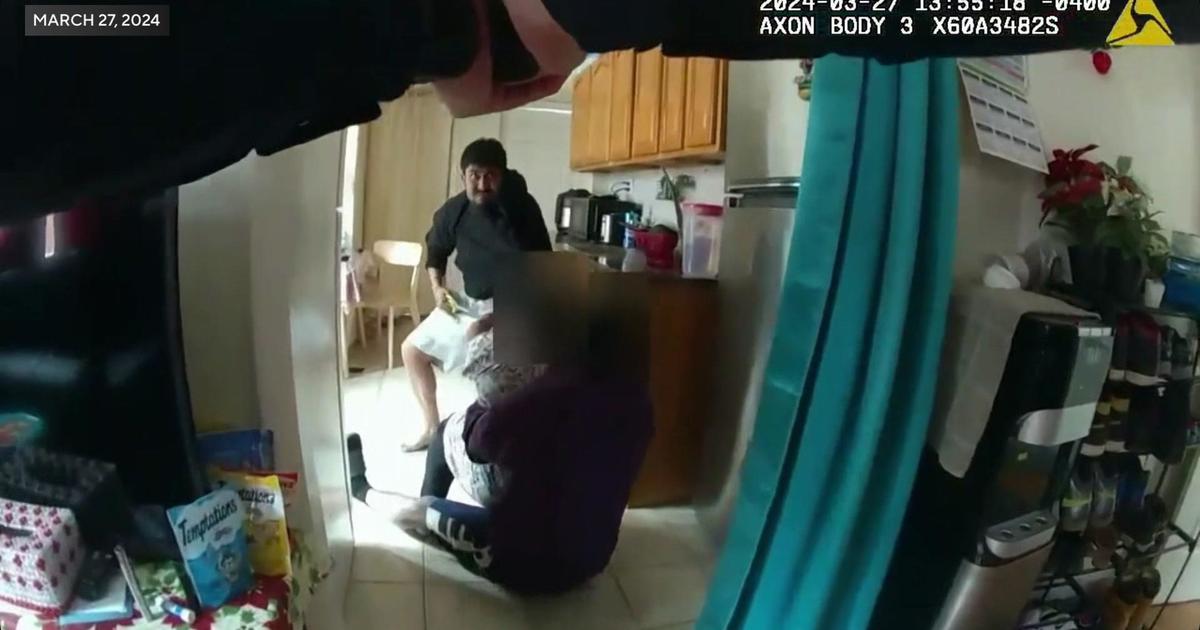Manhattan District Attorney Alvin Bragg speaks with CBS2's Maurice DuBois: "There's now a body of work to point to"
NEW YORK - Manhattan District Attorney Alvin Bragg has started the new year with some momentum.
Fresh from winning a conviction of the Trump Organization for fraud, he appears to be going after other aspects of Donald Trump's dealings, and he's pushing initiatives involving mental health and guns.
But his first year in office has, by all accounts, been a rocky one. Critics blast his policies as soft on crime.
CBS2's Maurice DuBois met Bragg at the Harlem Tavern, in the neighborhood where he's lived almost all 49 years of his life, to dissect year one, and look ahead.
Before they could even get inside, they spotted an unlicensed marijuana truck parked on 116th Street, illegally selling weed in plain sight.
DuBois: This right here, is this, is this legal?
Bragg: Most likely not. Because you know, we're in a regulatory gray zone
DuBois: Here's the DA right here. Here's a guy with a truck. What could be done about this?
Bragg: Well, we've been coordinating with with the sheriff -
DuBois: The short answer is nothing?
Bragg: Well, now the sheriff has been - they've impounded some vehicles. They've gone in, and in a lot of the tobacco smoke shops.
DuBois: But in the most practical terms, this guy gets to do business, unchecked, at least for now. That's, I mean, that's -
Bragg: It's problematic.
Watch Part 2
DuBois: You had guns pointed at you. You said shots have been fired near you, a knife pulled on you. Can you take me through those actual situations?
Bragg: In college, on 110th and Broadway... it was indiscriminate, and started shooting up this diner again, everyone ran for cover. You know, when the smoke cleared, the literal smoke cleared, you had people coming out of the kitchen with various forms of pots and pans or whatever they thought might, could protect them.
DuBois: So there's this lived experience. It's real. And when people say Alvin Bragg is soft on crime, how does it sit with you?
Bragg: It's not accurate... I think now that we've been in office for a year... gun prosecution is up 20%. Shootings and homicides are down. Hate crime prosecutions up. We're doing the work. We're doing it thoughtfully, focusing on those who are doing the most harm in Manhattan.
DuBois showed Bragg a clip of former Rep. Lee Zeldin calling for Bragg to be fired.
Bragg: In the political arena, particularly, you know, these - even if you look at his ads - quite often I was the only Black face in his commercials or other depictions. I don't think that was accidental... By the time he was saying that, there was data on our prosecutions and what we were doing, and we were far safer than other parts of the the state that he was campaigning in, and calling his own... And I'm doing that work along with 500 dedicated career prosecutors in an office of 1,500 public servants. It's a disservice to the victims, the survivors.
DuBois: So one year ago, this month, there was this infamous "day one memo" that you put out, right? Even your supporters would say, that's a rookie mistake. To state that you're not going to prosecute certain low level crimes - turnstile jumping, marijuana, prostitution, that kind of thing. When you look back at that, do you wish you had a do over?
Bragg: The memo was a legal, relatively dense memo that was meant for, you know, an audience of people who understood the depth and were doing the work, and the way it was put out without proper context... I'm accountable for that, not having the proper context for the public.
DuBois: If you send anything out to 500 people, they're gonna hit send and share. Right? You didn't clearly didn't think about that.
Bragg: We've got now a year of work. And, you know, when you look at us, across the city, across the state, and nationally, on homicides, on shootings, on hate crime work, on the work we're doing on prevention, and the $9 million investment in mental health, - pioneering work I'm so proud of. While of course, knowing that we have more more to do.
DuBois: I'm bringing it up, because it's fair in the sense that people still think about it, as criminals have the green light to do what they want in this city. Whether that's true or not, that's an impression that exists. And people feel that way. That's tangible.
Bragg: We just walked these blocks, right? I know as much, if not more, about the sort of things that are happening on the streets. And we are tailoring our work to address it. And so part of the reason I'm talking to you here, today, we want people to know the work that we're doing. To know that there's real accountability for violence on our trains, to know that there's real accountability for those who are doing harms.
DuBois: Just, the data still exists, you know, recidivism for felonies last year, most of them up in the 20% range, give or take. We talked about robberies, grand theft, grand theft auto, and larceny. I think it is all up in the 20% range citywide... It's a climate and a culture, that people feel like something needs to be changed. Something needs to change.
Bragg: You're not going to get a denial for me. I know what's going on in the streets. I'm here, I'm talking to people, I go to church with my neighbors. I'm seeing it every day professionally and personally. And so what I say to New Yorkers is, we know the challenges ahead and we're meeting the moment by where we're putting the resources in the office, the cases we're bringing.
DuBois: How does growing up in this neighborhood inform your day to day, your work?
Bragg: So, in really good ways, and sort of knowing the sort of community richness and ties... the houses of faith, the civic groups that are part of our public safety, network and vibrancy, right? Those are the things that make communities strong... that's why I'm still here, because I love this neighborhood.
Watch the full interview
DuBois: You were successful with the Trump prosecution, shall we say? But you didn't feel like the law goes far enough -- $1.6 million for a violation of that nature. What would be appropriate?
Bragg: We need a statute that is elastic, that, that will allow for me, if something like this, a systemic decades-plus fraud, to have fines that are not just something that can be priced in by, you know, a multi-million dollar corporation.
DuBois: You said you're gonna move on to the next chapter when it comes to the Trump Organization. Still outstanding -- the Stormy Daniels case, right, the value of his assets, says he's a victim of a witch hunt. His attorneys say you don't understand the tax laws in this last case, hinting that maybe you don't know what you're doing. Should he be held accountable?
Bragg: So first, the jury has so held, and the judge has done the sentencing. So I think that speaks for itself and is a reflection of the professionalism and rigor of the trial team ... We follow the facts. We follow the facts of the law. And as I've said, you know, when we conclude, we will speak either through an indictment or I will give a public statement, explaining our thoughts.
DuBois: You started an initiative recently on homelessness in the city. You put $9 million that you seized in various cases, to augment homeless programs. Some would say that's out of the purview of the DEA. But you say no. Why?
Bragg: We wanted to invest and provide resources for people to be able to connect, help those in mental health distress, which doesn't necessarily mean that a crime was going to happen, but certainly helps the sort of border instability of a neighborhood.
DuBois: The plan, though, is to sort of match people up with services as they're arrested, as they're arraigned? At what point in the process?
Bragg: So right after arraignment, right ... Having the connection and the service is made right there ... If we can address the underlying issue, we won't have what I call the churn, of a person going in for two weeks and coming right back to your neighborhood, right back to your corner and doing the same thing. That cycle of recidivism is what this funding is addressing.
DuBois: Your dad ran homeless shelters. Where?
Bragg: Right, he worked for the New York City, worked for HRA. He ran homeless shelters throughout the borough of Manhattan, in Midtown, and up in Washington Heights and out in Queens.
DuBois: And what kind of impact did that have a young Alvin Bragg?
Bragg: My dad's work, particularly drew me now for what we see sort of our challenges with mental health and our unhoused population. And when we did our $9 million commitment late last year, I very much had sort of him in mind in terms of sort of the humanity in trying to reach out to people in distress and form connections like he did, I could see the impact he had on people's lives.
DuBois: Just one more thing. You're a Knicks fan. Should they be held in contempt for not winning for 50 years? I'm a fan, too. It's been killing me.
Bragg: It's been hard. It's been hard. So glass half full, cautious optimists. Next year.
DuBois: Right. The owner, Jim Dolan, is banning people from the Garden who disagree or who are in litigation with him ... Should he be accountable for that kind of thing?
Bragg: I can't comment on that.
DuBois: But they do need to win.
Bragg: I can certainly comment on that. Wins would be great.




